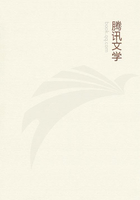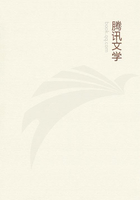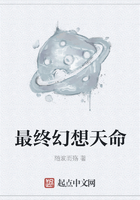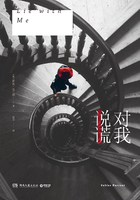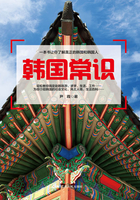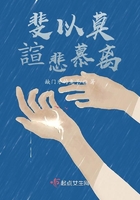The Greeks were famous for their love of athletic pastimes; and classical study serves powerfully to strengthen the belief that no institution exercised greater influence than the public contests of Greece in molding national character and producing that admirable type of personal and intellectual beauty that we see reflected in her art and literature. These contests were held at four national festivals, the Olympian, the Pythian, the Nemean, and the Isthmean games. On these occasions every one stopped labor, truce was declared between the States, and the whole country paid tribute to the contestants for the highly-prized laurels of these games. Perhaps the enthusiasm shown in athletics and interest in physical development among the Greeks has never been equaled by any other people. Herodotus and all the Greek writers to Plutarch have elaborated on the glories of the Greek athlete, and tell us of the honors rendered to the victors by the spectators and the vanquished, dwelling with complacency on the fact that in accepting the laurel they cared for nothing but honor. The Romans in "ludi publici," as they called their games, were from first to last only spectators; but in Greece every eligible person was an active participant. In the regimen of diet and training the physicians from the time of Hippocrates, and even before, have been the originators and professional advisers of the athlete. The change in the manner of living of athletes, if we can judge from the writings of Hippocrates, was anterior to his time; for in Book V of the "Epidemics" we read of Bias, who, "suapte nature vorax, in choleram-morbum incidit ex carnium esu, praecipueque suillarum crudarum, etc."From the time of the well-known fable of the hero who, by practicing daily from his birth, was able to lift a full-grown bull, thus gradually accustoming himself to the increased weight, physiologists and scientists have collaborated with the athlete in evolving the present ideas and system of training. In his aphorisms Hippocrates bears witness to the dangers of over-exercise and superabundant training, and Galen is particularly averse to an art which so preternaturally develops the constitution and nature of man; many subsequent medical authorities believed that excessive development of the human frame was necessarily followed by a compensatory shortening of life.
The foot-race was the oldest of the Greek institutions, and in the first of the Olympiads the "dromos," a course of about 200yards, was the only contest; but gradually the "dialos," in which the course was double that of the dromos, was introduced, and, finally, tests of endurance as well as speed were instituted in the long-distance races and the contests of racing in heavy armor, which were so highly commended by Plato as preparation for the arduous duties of a soldier. Among the Greeks we read of Lasthenes the Theban, who vanquished a horse in the course; of Polymnestor, who chased and caught a hare; and Philonides, the courier of Alexander the Great, who in nine hours traversed the distance between the Greek cities Sicyone and Elis, a distance of over 150 miles. We read of the famous soldier of Marathon, who ran to announce the victory to the Magistrates of Athens and fell dead at their feet. In the Olympian games at Athens in 1896 this distance (about 26 miles) was traversed in less than three hours.
It is said of Euchidas, who carried the fire necessary for the sacrifices which were to replace those which the Persians had spoiled, that he ran a thousand stadia (about 125 miles) and fell dead at the end of his mission. The Roman historians have also recited the extraordinary feats of the couriers of their times.
Pliny speaks of an athlete who ran 235 kilometers (almost 150miles) without once stopping. He also mentions a child who ran almost half this distance.
In the Middle Ages the Turks had couriers of almost supernatural agility and endurance. It is said that the distance some of them would traverse in twenty-four hours was 120 miles, and that it was common for them to make the round trip from Constantinople to Adrianople, a distance of 80 leagues, in two days. They were dressed very lightly, and by constant usage the soles of their feet were transformed into a leathery consistency. In the last century in the houses of the rich there were couriers who preceded the carriages and were known as "Basques," who could run for a very long time without apparent fatigue. In France there is a common proverb, "Courir comme un Basque." Rabelais says:
"Grand-Gousier depeche le Basque son laquais pour querir Gargantua en toute hate."In the olden times the English nobility maintained running footmen who, living under special regimen and training, were enabled to traverse unusual distances without apparent fatigue.
There is an anecdote of a nobleman living in a castle not far from Edinburgh, who one evening charged his courier to carry a letter to that city. The next morning when he arose he found this valet sleeping in his antechamber. The nobleman waxed wroth, but the courier gave him a response to the letter. He had traveled 70miles during the night. It is said that one of the noblemen under Charles II in preparing for a great dinner perceived that one of the indispensable pieces of his service was missing. His courier was dispatched in great haste to another house in his domain, 15miles distant, and returned in two hours with the necessary article, having traversed a distance of over 30 miles. It is also said that a courier carrying a letter to a London physician returned with the potion prescribed within twenty-four hours, having traversed 148 miles. There is little doubt of the ability of these couriers to tire out any horse. The couriers who accompany the diligences in Spain often fatigue the animals who draw the vehicles.

